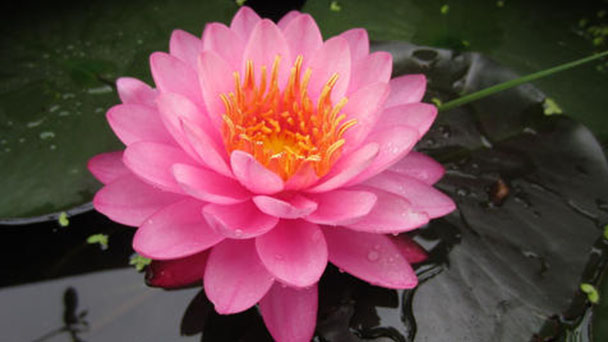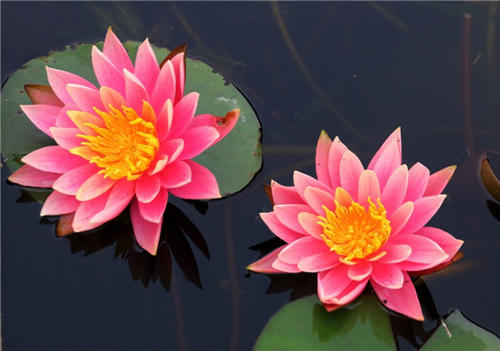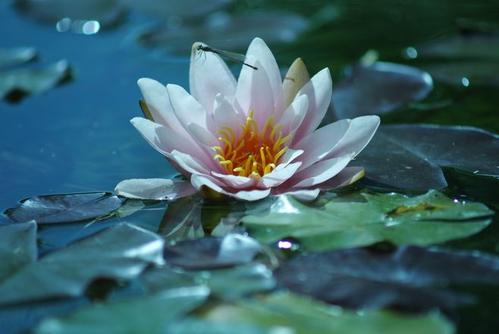How to Grow and Care for Pygmy Water Lily in Pots
Written by Maggie
Oct 30 2021

How to grow and care for Pygmy water-lily in pots? Pygmy water-lily is a perennial precious aquatic flower. The leaves and flowers of Pygmy Water-Lily float on the water. Because of its beautiful colors, beautiful flowers, in a pool of clear water like ice muscle refined girls, and was praised as the "goddess in water." Pygmy water-lily likes water wet, like a strong light and well-ventilated environment, cold resistance but avoids freezing. The fertilizer grows well in the rich humus and cohesive soil. Now, let’s look at the growing potted Pygmy water-lily.
Potted Pygmy Water Lily Soil Care
When we grow and care for potted Pygmy water-lily, it is better to choose the soil with heavy clay. There will also be special pygmy water-lily soil on the market, pure clay or semi-clay. It is not suitable to grow Pygmy Water-Lily with normal vegetative soil, which is usually loose and light in weight. Some friends will also add some pebbles or gravel when planting Pygmy Water-Lily, which is a very good decoration. Single page will easily lead to more algae reproduction..
Potted Pygmy Water Lily Container
When we grow and care for potted Pygmy water-lily, we can choose a larger container as far as possible, or even use the barrel for curing. Too small a container will hinder the growth of the tuber of Pygmy Water-Lily, and too small a basin will only grow a few leaves, and even affect the flowering. Only sufficient space can allow Pygmy Water-Lily to have enough nutrition.
Pygmy water-lily varieties are usually planted in pots with a diameter of about 40 cm, while small or low Pygmy water-lily varieties can be planted in smaller containers with a diameter of about 26 cm. There are many varieties of Pygmy Water-Lily, which can be either potted for conservation or planted beside the pool. It is an excellent aquatic plant.
Potted Pygmy Water Lily Light Care
Pygmy water-lily is a positive plant. If there is insufficient light during the development period, the stem and leaves of Pygmy water-lily will be lush, but the flowering will be few, or even only long leaves without flowering. When we grow and care for potted Pygmy water-lily, if put in the shade for a long time and not the overall view of the place conservation, the surface of the water easy to grow moss, resulting in plant growth and weakness, will also appear only long leaves and not flowering phenomenon. Before and after the Cold Dew Festival, pour out the water in the basin and put it in a cool environment of about 3 degrees for the winter. The soil in the basin can be kept moist and free from freezing. The spring of the next year can be divided, lest the rhizome inside the basin is crowded, stunted, thus affecting flowering.

Potted Pygmy Water Lily Watering
Summer management, the main is to smoothly grasp the depth of water, keep the water clean, and timely change water. Water change time should be in the early morning, in case the water temperature difference between the old and new pool water is too big, affecting the normal growth of flowers and leaves. When we grow and care for potted Pygmy water-lily, combine the rinsing sink to remove the rotten leaves and residual petals, but do not remove the receptacle for firm.
Potted Pygmy Water Lily Fertilizer
In addition to the high temperature, ventilation and sunshine, Pygmy water-lily also needs proper fertilizer so that it can blossom better and its leaves can flourish more easily. When we grow and care for potted Pygmy water-lily, we can choose the common aquatic type of general fertilizer, usually you can check the ratio of nitrogen, phosphorus and potassium on the fertilizer, generally 20-20-20 fertilizer, these three numbers respectively represent the ratio of nitrogen, phosphorus and potassium (in order). No matter what type of aquatic plant fertilizer you choose, choose a moderate amount of phosphorus, which is not only an important part of the formation of roots and shoots, but also the key to the formation of attractive flowers for Pygmy Water-Lily.
Potted Pygmy Water Lily Pruning Care
When we grow and care for potted Pygmy water-lily, after flowering, Pygmy Water-Lily can remove the dead flowers and leaves to prevent excessive consumption of nutrients, which can better maintain the beauty of the plant.

Read More:
20+ Plants That Grow in Water
Latest Updated
- Benefits of Bugleweed - 7 Science-backed Health Benefits
- Bugleweed Dangers & Side Effects - Is It Poisonous?
- How to Plant Evergreen Trees - What You Should Know
- When to Plant Evergreens - Grow Guide for Evergreen Trees
- 12 Wonderful Evergreen Shrubs for Your Garden
- 12 Popular Evergreen Plants with Pictures for Beginners
- When And How To Prune A Lilac Bush Like a Pro
- How to Grow & Care for Lilac Vine (Hardenbergia Violacea)
- Japanese Lilac Tree (Syringa Reticulata) Care & Propagation Guide
- Shumard Oak Pros and Cons - What to Know
Popular Articles
- Winter maintenance of Antirrhinum Majus
- How to Grow Terminalia Mantaly Tree
- How to Grow and Care for Crossostephium Chinense
- How to grow Antirrhinum Majus in spring
- Peristeria Elata (Dove Orchid) Profile: Info & Care Guide
- Underwatered Snake Plant (Sansevieria Trifasciata) - Signs And How To Fix
- How to Care for Brazilian Jasmine Plant (Mandevilla Sanderi)
- How to Grow & Care for Graptopetalum Purple Delight in Summer
- Rosa Chinensis (China Rose): Plant Growing & Care Tips
- How to Care for Baby Sun Rose (Aptenia Cordifolia)